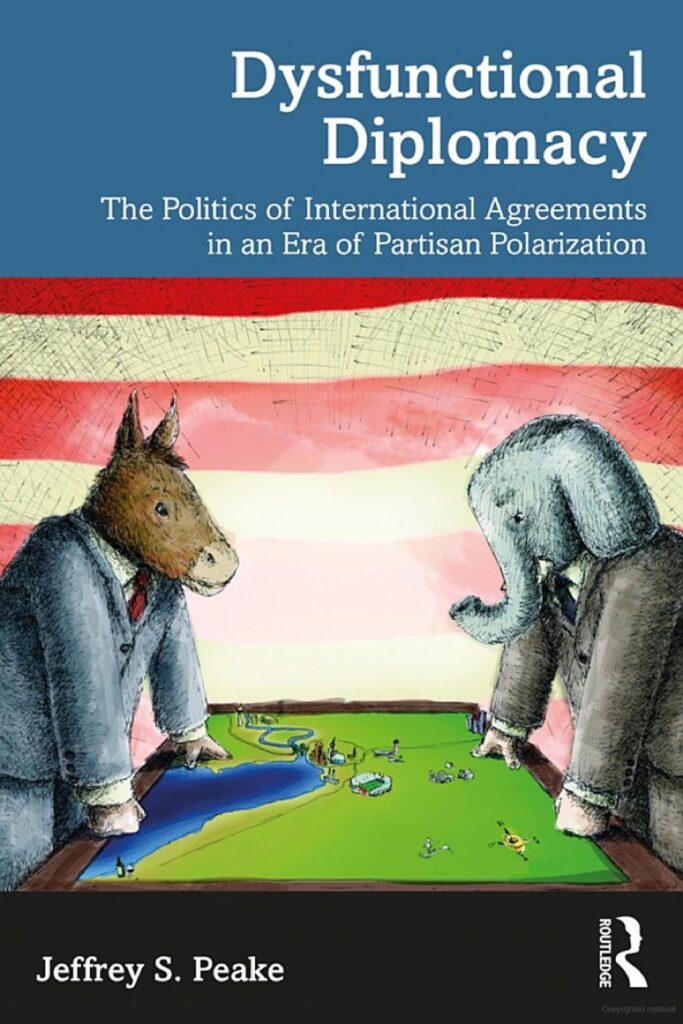A new book published by a Clemson University professor examines partisan polarization within the United States government and its impact on international agreements.
The book, “Dysfunctional Diplomacy,” written by Jeffrey Peake, professor and chair of the Department of Political Science, uses a mixed-methods approach to assess the politics surrounding treaty ratification and the use of unilateral authority since World War II, focusing primarily on the twenty-first century.

“In recent years, extreme partisan polarization has caused a break down in political processes to the point that democratic norms are no longer common practice,” said Peake. “Since the start of the twenty-first century, presidents more often abandon international treaties in favor of executive agreements – a process with less oversight, more presidential autonomy and negative domestic implications.”
Peake said the impetus for the book came while watching a presidential debate in 2008 when candidates discussed the importance of treaties, further exposing the disconnect between the perspectives of Congress and the executive branch. During this time, the transparency regime – a legislative tool that enables greater public access to information – was also becoming increasingly limited in both its access to and dissemination of information.

Over the course of his nearly decade-long examination of data, Peake enlisted undergraduate students in the research process, through the Creative Inquiry program. Students identified how many treaties were submitted for senate consideration and how many were signed and never submitted. They helped identify political variables, write summaries and link to related research studies. In all, Peake and students coded 1,000 treaties, over 3,000 executive agreements and wrote case studies on more than a dozen major international agreements.
Following the release of his book, Peake will return to faculty after a twelve-year term as chair of the political science department later this year.
Under Peake’s leadership, the department has nearly doubled its students and faculty, expanded its program offerings and increased faculty research and grant funding. He takes pride in the fact that their faculty are receiving Fulbright Scholarships, book fellowships and competitive grants – all the makings of a healthy department – while still remaining student and research-focused.
“Dr. Peake has guided the Department of Political Science into the future as a vibrant, multi-faceted program,” said Leslie Hossfeld, dean of the College of Behavioral, Social and Health Sciences. “I greatly appreciate all that he has done over the years to build and strengthen the department. We are very fortunate to have Dr. Peake back in the classroom to share his expertise and to mentor the next generation of political science students at Clemson University.”
The Department of Political Science is part of the College of Behavioral, Social and Health Sciences, a 21st-century land-grant college joining together a unique combination of schools and departments: Communication, Nursing, Parks, Recreation and Tourism Management, Political Science, Psychology, Public Health Sciences and Sociology, Anthropology and Criminal Justice. These areas have distinctive characteristics and missions – all joined together by a common thread of service to people and communities.
Get in touch and we will connect you with the author or another expert.
Or email us at news@clemson.edu

